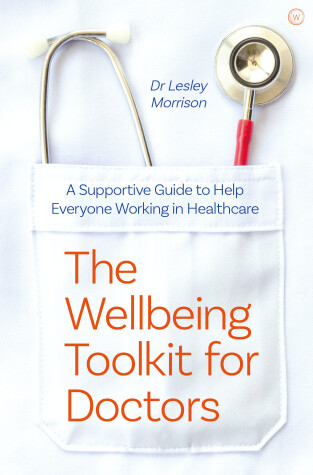Reviewed by annieb123 on
The Wellbeing Toolkit for Doctors is a reasonable self-care support guide aimed at healthcare workers by Dr. Lesley Morrison. Released 8th June 2021 by Watkins, it's 192 pages and is available in paperback and ebook formats.
This is a well written, sensible, layman accessible guide to well-being and self-care aimed at healthcare professionals. The author is a retired clinician with years of experience both in practise and as an educator in the medical field.
Nobody can possibly say that the last couple of years haven't been extremely stressful and exhausting. This is especially true for front line workers for whom the workplace became more comparable to a chaotic battlefield and less like a reasonable professional environment. In the midst of a crisis, we go into survival mode, both physiologically and emotionally, but over an extended period of time unresolved trauma can have lasting effects.
This guide groups different aspects of the daily work of healthcare professionals into relevant sections: communication, compassion, kindness, empathy, psychological support and network, resilience, hope, family support, teamwork, different roles in life for one individual (she refers to these as "hats"), finding (and using) our voices, improving our working environment and relationships with colleagues, and other pertinent issues. She gives relevant and practical advice in honest pared down plain language. It felt more like a one-on-one conversation with someone who really understands the issues and constraints of being a healthcare professional, because she *is* one.
Although the bibliography and chapter notes are full of good academic resources and links to follow up, the language of the book itself is not obfuscated or convoluted in any way. I'm not a clinician, I work as a bioengineer in a histopathology lab, so I don't have any patient contact at all, but I found a number of good takeaways relevant to my professional interactions with my colleagues and others, as well as many well presented ideas for self-care.
Five stars. This would be a good selection for medical professionals, academics, families of front-line workers, and should be on recommended reading lists for students of clinical medicine and allied fields.
Disclosure: I received an ARC at no cost from the author/publisher for review purposes.
Reading updates
- Started reading
- 19 June, 2021: Finished reading
- 19 June, 2021: Reviewed
